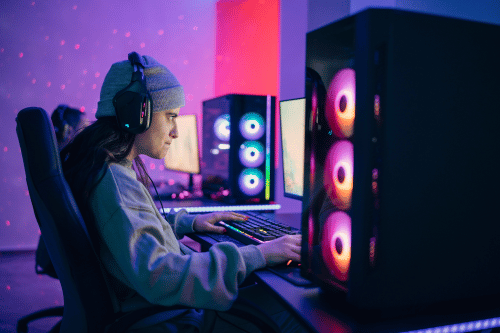Video Game Addiction Symptoms
Understanding Video Game Addiction
Video game addiction is a behavioral addiction marked by problematic gaming behaviors that interfere with daily life. Also referred to as internet gaming disorder, it involves impaired control over gaming, preoccupation with gaming, and continuing to play despite adverse consequences. While video games can offer a source of motivation and enjoyment, excessive gaming may harm mental health, physical health, and social life.
Definition of Video Game Addiction
The American Psychiatric Association defines internet gaming disorder as a mental health condition requiring further study. The 11th Revision of the International Classification of Diseases (ICD-11) includes gaming disorders under mental disorders, identifying a pattern of compulsive gaming behavior leading to negative life consequences.
Prevalence and Demographics
Millions of people play video games daily, but a small percentage develop video game addiction. The prevalence of internet gaming disorder is higher among adolescents, especially males. Online multiplayer games and intense games are often associated with higher rates of addiction due to the release of dopamine and competitive features.
Symptoms of Video Game Addiction

Emotional Symptoms
Common symptoms of video game addiction include:
- Mood swings or negative moods when not gaming
- Anxiety or depression connected to gaming outcomes
- Preoccupation with games and cravings for more gaming time
Physical Symptoms
Frequent video gaming may lead to:
- Fatigue, headaches, and damage to eyesight
- Carpal tunnel syndrome and poor posture
- Increased blood pressure and potential cardiovascular disease
Behavioral Changes
Signs of video game addiction can include:
- Skipping daily responsibilities or school
- Lying about amounts of time gaming
- Spending excessive time on online activity, especially online gaming
- Withdrawal from social activities or family activity
Risk Factors
Age and Susceptibility
Individuals with video game addiction are often adolescents who may lack problem-solving skills or healthy coping strategies. The appeal of favorite games and online interaction can lead to addiction during a critical stage of development.
Gender Differences
Males are more frequently affected by video gaming addictions, especially involving console games and competitive gameplay. Females may be more prone to social gaming but can still develop a relationship with video games that leads to addictive behaviors.
Mental Health Issues
Mental health disorders such as ADHD, depression, and anxiety are closely tied to problematic gaming behaviors. Some teens use video games to escape negative emotions or to cope with stressful aspects of life, increasing risk of addiction.
Impact of Video Game Addiction
On Relationships
Video game addicts may struggle in familial relationships and personal relationships. Gaming becomes the dominant activity, reducing meaningful social interactions and creating conflict over screen time, household responsibilities, or shared expectations.
On Mental Health
The effects of video game addiction on mental health include worsening mood disorders, behavioral issues, and reduced academic performance. It may mimic or worsen symptoms of substance use disorder and gambling addiction, disrupting daily activities and mental wellness.
Differentiating Between Hobby and Addiction

Casual Gaming vs. Addiction
Many teens play games as a recreational activity, but excessive video game use can escalate to addiction. A key factor is the negative impact on school, relationships, and emotional regulation. Casual play supports balance; addiction takes over aspects of life.
Diagnosis of Video Game Addiction
Criteria for Diagnosis
The diagnosis of internet gaming disorder includes:
- Impaired control over gaming behaviors
- Increasing priority of video game time over other activities
- Continued play despite negative consequences
These criteria are used by mental health professionals and may be supported by a video game addiction test or behavior observation.
Treatment Options
Therapy Approaches
Cognitive-behavioral therapy (CBT) is one of the most effective treatments for video game addiction. It focuses on identifying harmful behavioral patterns, building cognitive skills, and restoring healthy habits. Family therapy also helps rebuild trust and support communication.
Medication Possibilities
Although no medication is approved solely for gaming disorders, some medical professionals may recommend treatment for underlying psychiatric conditions such as depression or anxiety. In some cases, medication helps regulate dopamine highs and improve focus.
Practical Tips for Seeking Help
For Individuals
- Track gaming time and limit screen time
- Explore alternative activities like physical exercise, volunteering, or clubs
- Talk to a mental health professional or school counselor
- Build social skills and reconnect with real life interests
For Families
- Set clear rules about screen time and online activity
- Encourage participation in family activity and extracurricular activities
- Watch for warning signs of addiction to gaming
- Seek support from mental health providers for guidance
At Adolescent Mental Health in Orange County, our team helps teens recover from video game addiction and related mental health issues. We offer behavioral therapy, mental health counseling, and support for families. If your child shows signs of compulsive gaming, we’re here to help guide them toward a healthier future.










